The 10 ‘Most Corrupt’ Countries In The World
Roberto Saviano, the anti-mafia expert, has made headlines after describing the UK as the “most corrupt country in the world.”
Speaking at the Hay festival, the journalist, who has been living under armed guard since exposing a crime syndicate in Italy, described London’s banking system as “criminal capitalism”.
“If I asked what is the most corrupt place on Earth, you might say it’s Afghanistan, maybe Greece, Nigeria, the south of Italy. I would say it is the UK,” he said.
“It’s not UK bureaucracy, police, or politics, but what is corrupt is the financial capital. Ninety per cent of the owners of capital in London have their headquarters offshore.”
According to the Corruption Perception Index 2015, the UK is actually ranked the 10th least corrupt country on the planet.
But who are the most corrupt?
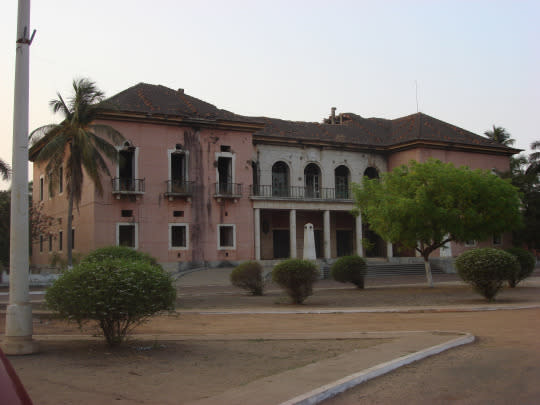
Guinea-Bissau
This West African country is the least well known on this list, but has a long history of corruption and political instability. According to Transparency International, the company behind the Corruption Perception Index, the country is plagued by weak government, which has failed to tackle money-laundering. In fact, no president has made it to the end of their term in office and, in 2012, a military coup deposed the government. (WikiCommons)
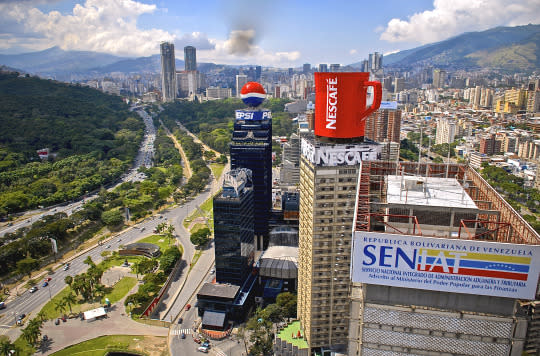
Venezuela
Venezuela’s murder rate fell last year to 58 per 100,000 inhabitants – from as high as 90 in 2015 – making it one of the most dangerous countries on the planet. It’s also one of the most corrupt. According to some estimates, fraud has robbed Venezuela’s public coffers of a staggering $360bn (£23bn). An investigation revealed that, in a country where the poorest are desperately short of basic goods, powdered milk imported by a state-owned company was being illegally smuggled into Colombia. (WikiCommons)
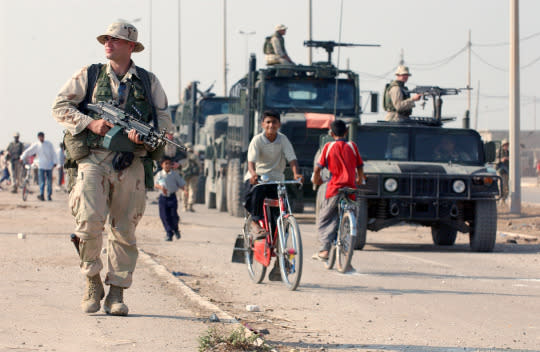
Iraq
One of the key indicators of the Iraq invasion’s failure has been the country’s continued place in the bottom ten of the Corruption Perception Index. In fact, Saddam Hussein’s legacy seems to remain, something that is common in countries where dictators once ruled. Corruption there has been put down to many things: political interference, lack of political will, a weak civil society, a confusing penal code, and a lack of resources limit the effectiveness of anti-corruption measures. (WikiCommons)

Libya
The North African country, formerly controlled by Colonel Gaddafi, is another country whose liberation has not prevented corruption. It is not only in the bottom ten of the the Corruption Perception Index 2015, but also on the Global Corruption Barometer (also by Transparency), which puts 62 per cent of people of having paid a bribe. The oil-rich state’s net of corruption is so large that scandals have engulfed many foreign companies and diplomats. (Xinhua News Agency/REX/Shutterstock)
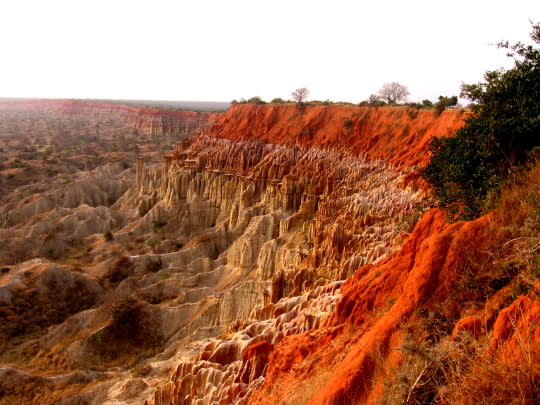
Angola
One of Africa’s major oil producers, Angola still feels the effects from its 26-year-long civil war that ended in 2002, the result of fighting over ‘blood diamonds’. The country has been the victim of long-term and quite public corruption. In 2011, despite the government having been credited with improving transparency over its oil revenues, £32bn went missing – the equivalent to 25 percent of Angola’s gross domestic product. José Eduardo dos Santos, who has been president since 1979, has been accused of wide-ranging corruption and human rights abuses. (WikiCommons)
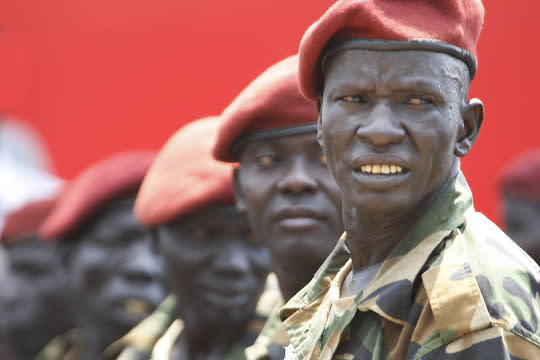
South Sudan
The newest country in the world is also one of the world’s most corrupt – 163rd out of 167 countries on the Corruption Perception Index 2015. South Sudan’s information minister Michael Makuei has dismissed the list as “mere opinions”, however the journalist Nyol Gaar Nguen described “outright thieves and looting of public funds in a broad day light.” The president Salva Kiir Mayardit says he’s tackling corruption – but sacked a minister who described the country as “rotten to the core”. (WikiCommons)
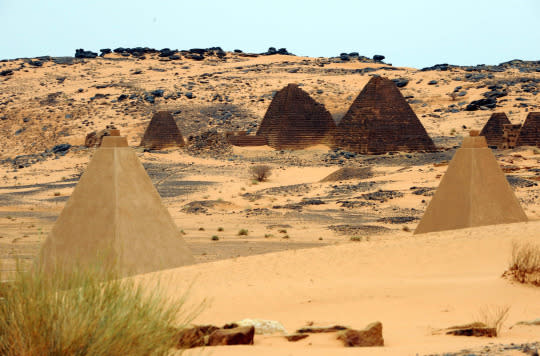
Sudan
The country from which South Sudan separated from in 2011, Sudan is deemed to be even more corrupt than the breakaway state. Freedom House put it as the worst offender in the world for human rights abuses, while the World Bank Worldwide Governance says “corruption permeates all sectors, and manifests itself through various forms, including petty and grand corruption, embezzlement of public funds, and a system of political patronage well entrenched within the fabrics of society.” (Xinhua News Agency/REX/Shutterstock)
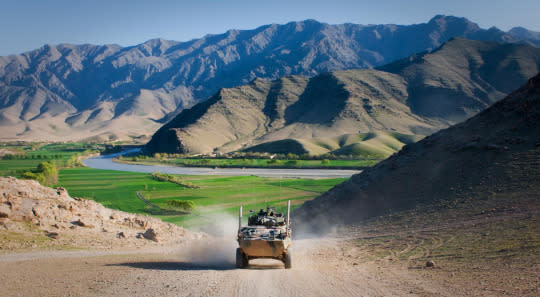
Afghanistan
David Cameron recently described Afghanistan as "fantastically corrupt” in what was considered a major diplomatic gaffe. The country’s president, Ashraf Ghani, said the prime minister was describing the “the legacy of the past”. He added that he has “been elected on a mandate to make transparency, accountability and the rule of law the imperative,” but Afghanistan is actually now more corrupt according to the Corruption Perception Index. Transparency said that, in the country, “millions of dollars that should have gone on reconstruction have been reportedly wasted or stolen, seriously undermining efforts to sustain peace.” (WikiCommons)
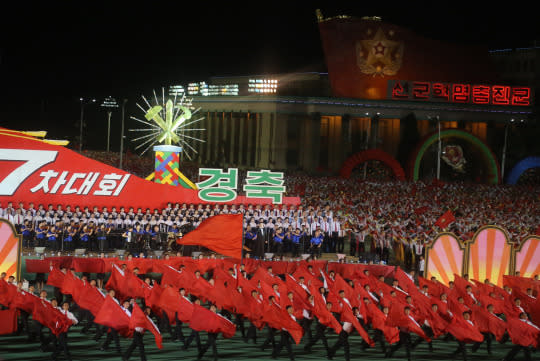
North Korea
Those the least bit familiar with Kim Jong Un’s dictatorship will recognise North Korea’s place on the list as the joint first most corrupt country in the world according to Transparency. Corruption there includes bribery, counterfeit medicine and a total lack of transparency, as well as severe human rights abuses. Yet, like so much else with North Korea, much is kept totally secret. (Xinhua News Agency/REX/Shutterstock)
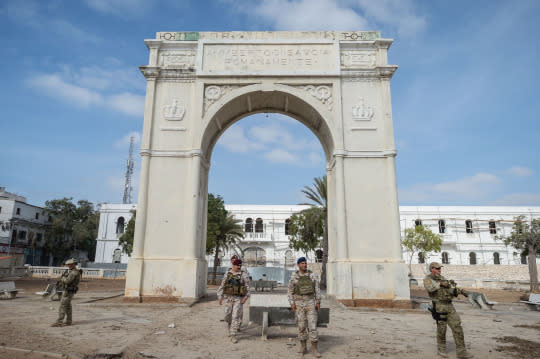
Somalia
Tied first on the Corruption Perception Index 2015 with North Korea and Afghanistan is Somalia, a country that has been embroiled in civil war since 1991. The country was considered a failed state for many years, although governments have been more recently installed (and, usually, quickly dismissed). The UN said “despite the change in leadership in [the capital] Mogadishu, the misappropriation of public resources continues in line with past practices". Incredibly, 80 per cent of withdrawals for the central bank are for private – not public – purposes. (ddp USA/REX/Shutterstock)

 Yahoo News
Yahoo News 
